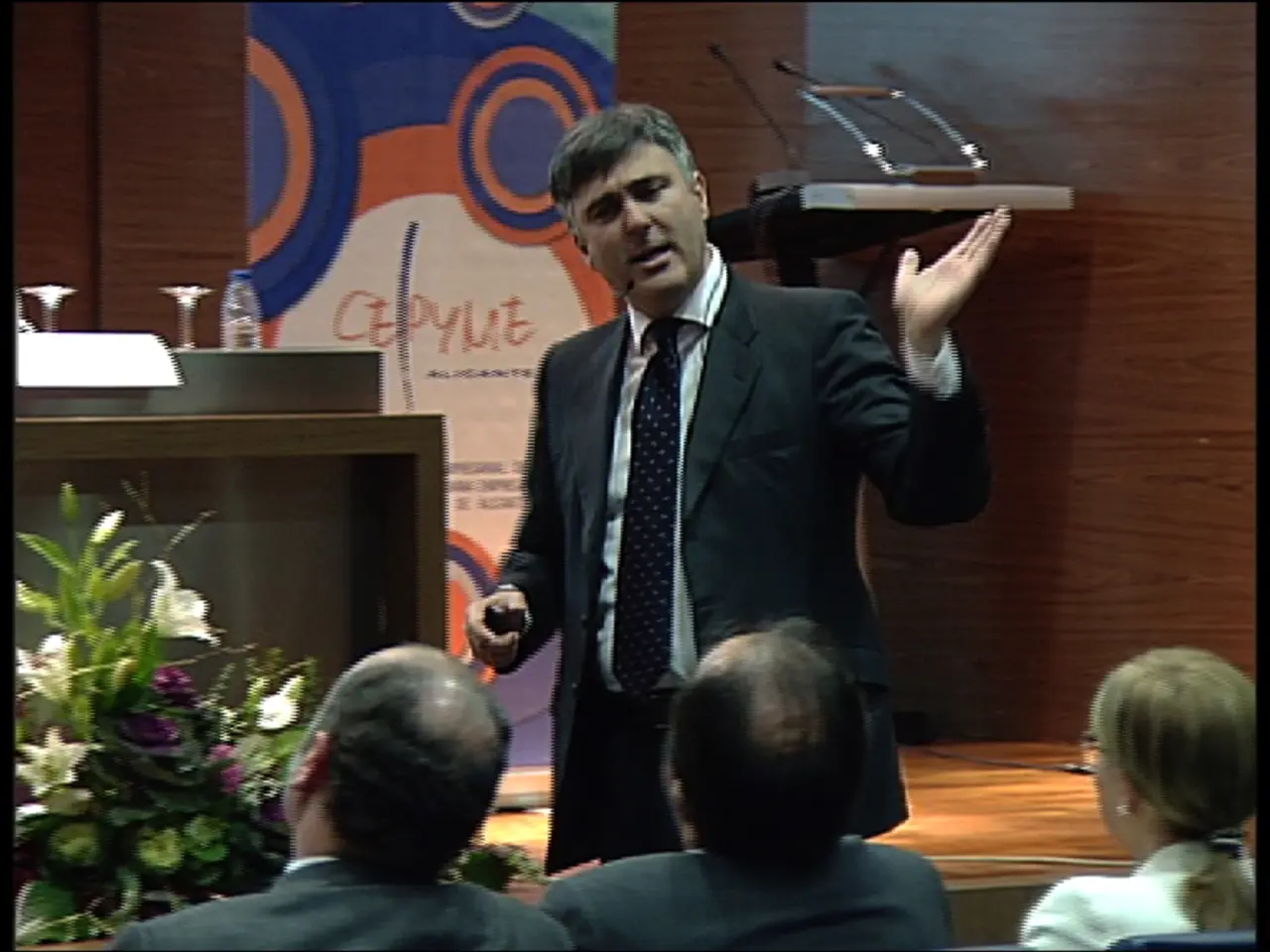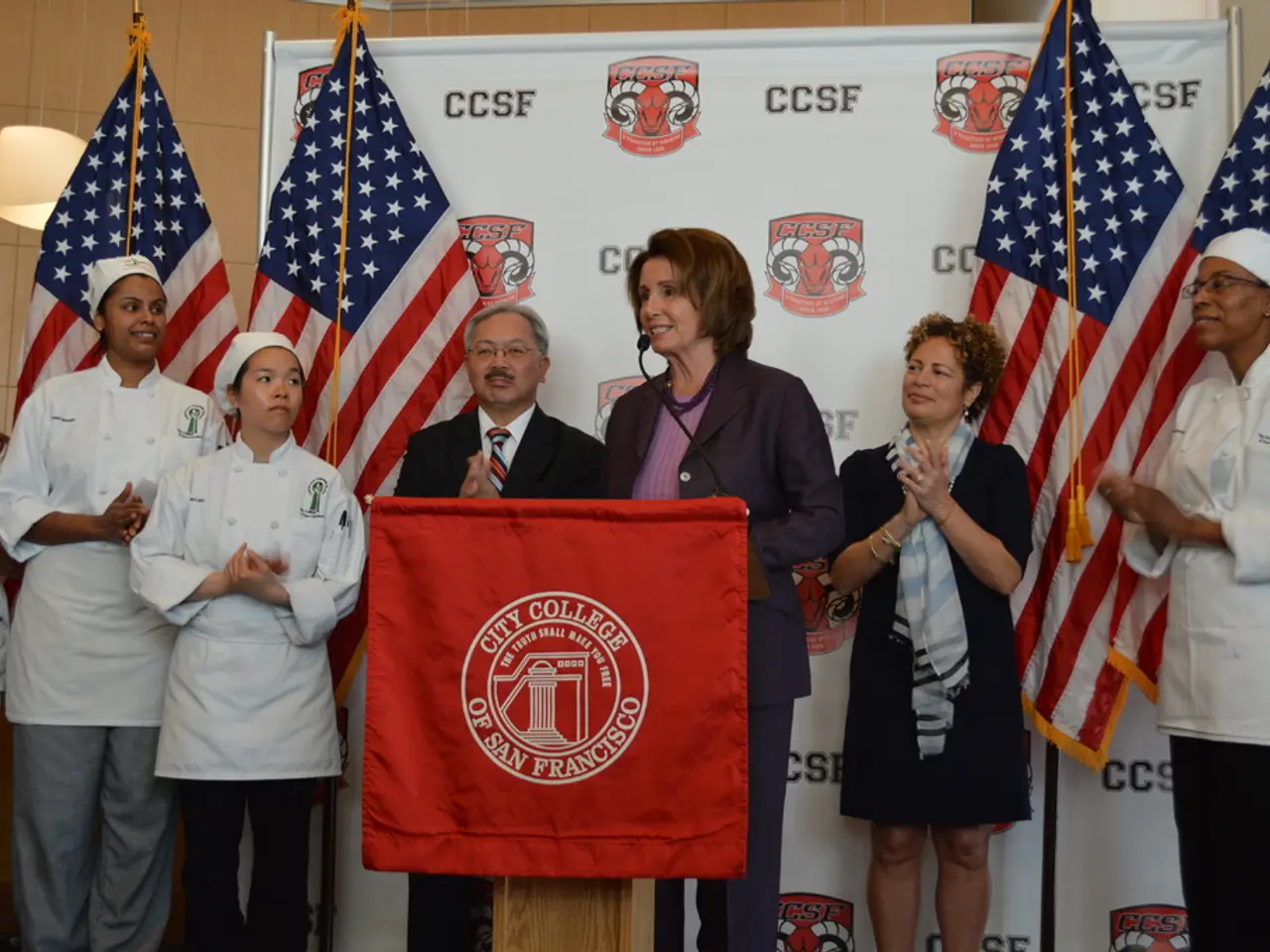Republicans Engage in Internal Debate Regarding Spending Methods
As the deadline for fiscal year 2025 funding approaches, a contentious impasse persists between Senate Republicans and the White House.
Senate Republicans, under the leadership of Majority Leader John Thune and Appropriations Chair Susan Collins, have rejected the White House's proposed deep budget cuts. They argue for respecting congressional appropriations authority and oppose unilateral White House impoundments. Senate appropriators have voted to reject the administration’s proposed cuts to public health, education, and research programs, instead opting for modest increases or restoration of funding.
On the other hand, the White House, under President Trump, continues to challenge and attempt to rescind billions in emergency and discretionary funds that Congress designated. These actions have drawn bipartisan legislative rebukes and ongoing legal challenges. The Office of Management and Budget, led by Russell Vought, has signaled more recissions packages are forthcoming, and the White House prefers a year-long continuing resolution (CR) that would freeze spending at current levels, a proposal opposed by some Senate Republicans who view it as locking in President Biden’s budget baseline.
The Senate and House remain divided, with only a few appropriations bills passed and many left unsettled. Most senators aim to avoid a year-long CR but face difficulty pushing substantial cuts. The House, dominated by Republicans, favors a longer CR to constrain spending more tightly, while Senate Republicans are split between bipartisan deals with Democrats and the conservative push for spending freezes or cuts.
As September approaches, Collins and her House and Senate counterparts may finish off the year's spending decisions and turn to next year after September 30, using a shorter-term stopgap. The path forward likely involves partial appropriation bills in September combined with continuing resolutions, but a full funding agreement remains uncertain as Congress returns from August recess.
This ongoing impasse reflects profound disagreements over spending priorities and budgetary control between Senate Republicans and the White House. The future of FY 2025 funding remains uncertain as the deadline approaches.
Meanwhile, on other fronts:
- Tesla has given Elon Musk $29 billion in stock to keep his focus on the carmaker rather than his sprawling space, AI, and brain-science empire.
- Members of the oil producers' group OPEC+ agreed to raise production as concerns grow over possible disruptions to Russian supply.
- The US and China are increasingly decoupling, even as they try to maintain a fragile trade truce.
- House and Senate appropriators dislike CRs because they leave no room to update spending for priorities.
- Indian scholars and officials are increasingly angry with the US over tariff threats over its purchase of Russian oil.
- China and Russia opened joint naval drills in the Sea of Japan, planning to carry out patrols in parts of the Pacific.
- US President Donald Trump ordered the positioning of two nuclear submarines "in the appropriate regions" in response to "highly provocative" and "inflammatory" statements from Dmitry Medvedev, the deputy chair of Russia's security council.
- The agreement between Australia and Japan involves the sale of 11 stealth frigates able to launch long-range missiles, significantly expanding Australia's maritime defense capabilities.
- Measles is surging again, thanks to vaccine skepticism, with Canada having more cases than the entire US this year.
- Kremlin-backed hackers are targeting foreign embassies in Moscow, planting malware on diplomats' computers.
- In the realm of policy-and-legislation, the ongoing dispute between Senate Republicans and the White House over FY 2025 funding has led to a contentious impasse, as they differ profoundly on spending priorities and budgetary control.
- Amidst this political standoff, House and Senate appropriators express their dislike for year-long continuing resolutions (CRs), as they hinder the ability to update spending for priority areas.






